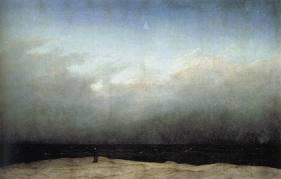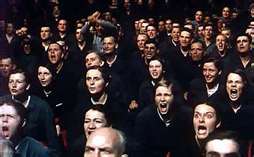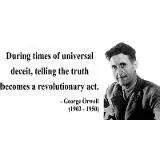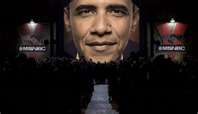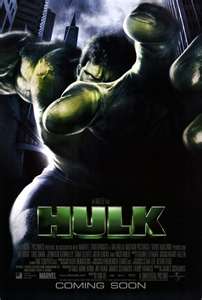Whether you think Edgar Allan Poe’s stories are expertly-crafted explorations of the dark side of human nature or morbid, overwrought melodramas, there is no doubt his work has had a tremendous impact on Western culture. Probably his most important contribution, apart from establishing the contemporary short story format and inventing the detective genre, is revitalizing the Gothic genre and pushing horror fiction in a more philosophically interesting direction. His stories are so enduring and influential because of the conceptual depth he added to generic tropes, redefining literature in the process. He accomplished this feat by perverting the Gothic.
By the time Poe arrived on the scene, Gothic fiction had already fossilized and become fodder for self-parody. What started with the fantastic absurdities of Horace Walpole’s The Castle of Otranto (1764) and culminating in the speculative complexity of Anne Radcliffe’s Mysteries of Udolpho (1794) had eventually led to Northanger Abbey (1817), Jane Austin’s metafictional send up of what had become pretty stale conventions by then: crumbling castles, tormented heroines, supernatural entities, and family curses. Although the external trappings of Gothic plots may have fallen into ruin, its themes remained relevant. According to Joyce Carol Oates, a master of the genre in her own right, Gothic fiction explores the fragmentation of the alienated mind by inscrutable historical and biological forces that can overwhelm one’s ability to rationally understand the world and make intelligent choices, a critical antidote to naïve utopian visions of the future inspired by the Enlightenment and of particular interest to American culture, the intellectual basis of which is rooted in the rational pursuit of happiness. ‘Gothic’ suggests the fear of something primal and regressive that threatens to undermine mental and social stability. In order to be a culturally relevant again, though, Gothic literature needed a writer who could reanimate its tropes. It needed a morbid, hypersensitive, and arrogant genius named Edgar Allan Poe.
Poe’s key twist is turning the tropes inward and starting with the macabre landscape within—“the terror of the soul,” he calls it. By the 1830s, Poe is focused on composing short fiction, crafting tightly-constructed tales, rendered in dense, pompous prose, spewing from the cracked psyches of unreliable narrators. This is the dark heart of many of his best stories: “Ligeia” (1838), “William Wilson” (1839), “The Black Cat” (1843), “The Tell-Tale Heart” (1843), and “The Cask of Amontillado” (1846), just to name a few (of course, his most accomplished story, “The Fall of the House of Usher” (1839), flips this dynamic: an unnamed and relatively reasonable narrator details the psychic disintegration of Roderick Usher). Poe’s disturbed, epistemologically-challenged protagonists aren’t the true innovation. Marlowe and Shakespeare pioneered that literary territory centuries before. The element that Poe adds—the novelty that both revitalizes and Americanizes the Gothic—is, what Poe himself calls, “the spirit of the perverseness.”
 The narrator in “The Black Cat” puts forth this concept to explain his violent deeds. He says perversity is “one of the primitive impulses of the human heart—one of the indivisible primary faculties…which give direction to the character of Man.” What is its function? It is the “unfathomable longing of the soul to vex itself,” the narrator says, “a perpetual inclination, in the teeth of our best judgment” to commit a “vile or a silly action” precisely because we believe it to be ‘vile’ or ‘silly.’ In “The Imp of the Perverse” (1845), the narrator claims that perversity is “a radical, primitive, irreducible sentiment,” so deep and pervasive, that it is ultimately immune to the prescriptions of the analytical mind. In other words, Poe identified the disruptive and neurotic effects of ‘the Unconscious’ half a century before Freud burst onto the scene.
The narrator in “The Black Cat” puts forth this concept to explain his violent deeds. He says perversity is “one of the primitive impulses of the human heart—one of the indivisible primary faculties…which give direction to the character of Man.” What is its function? It is the “unfathomable longing of the soul to vex itself,” the narrator says, “a perpetual inclination, in the teeth of our best judgment” to commit a “vile or a silly action” precisely because we believe it to be ‘vile’ or ‘silly.’ In “The Imp of the Perverse” (1845), the narrator claims that perversity is “a radical, primitive, irreducible sentiment,” so deep and pervasive, that it is ultimately immune to the prescriptions of the analytical mind. In other words, Poe identified the disruptive and neurotic effects of ‘the Unconscious’ half a century before Freud burst onto the scene.
While these narrators claim that philosophers have ignored man’s irrational inclinations, we shouldn’t assume Poe, himself a well-read scholar, wasn’t influenced by obvious precursors to ‘the spirit of perverseness,’ namely Aristotle and St. Augustine. In the Nicomachean Ethics, Aristotle posits his theory of akrasia, the vice of incontinence, i.e. the inability to control oneself and do the virtuous thing even when one knows it is the right choice. This is his corrective to the Socratic-Platonic dictum that to know the good is to do the good: no one willingly does evil. To Aristotle, this is a distorted view of the human condition. We can know theoretically what the virtuous choice is—wisdom Aristotle calls sophia—but that doesn’t automatically compel us to have phronesis, or practical wisdom, which is the ability to do the good. In other words, there is a gap between knowledge and action, a notion that surfaces again in Aristotle’s Poetics. In his analysis of drama, Aristotle identifies hamartia as a key characteristic of the tragic hero, referring to the flaws in judgment that lead to a character’s ultimate downfall. An archery metaphor that means “to miss the mark,” hamartia becomes the main word New Testament writers use to translate the Jewish concept of sin into Greek (they weren’t the first to do this: writers of the Septuagint, the 2C BCE Greek translation of Hebrew scripture, had already made this move). By the fifth century CE, St. Augustine, the most influential Christian theologian of late-antiquity, formulates his doctrine of original sin, describing humanity’s lack of self-control as innate, embodied depravity. For Augustine, when Adam and Eve disobeyed God, they condemned their progeny to bondage, chaining the human spirit to this corrupt, uncontrollable, and ultimately decaying flesh. Only Christ’s sacrifice and God’s loving grace, Augustine assures us, can liberate the spirit from this prison.
This is part of the philosophical lineage behind perverseness, despite his narrators’ claims to the contrary. There is, however, some truth to the critique if seen from a mid-19C perspective. From Descartes right through to Locke, ‘Reason‘ is heralded as humanity’s salvation (of course, Hume and Rousseau poke skeptical holes in 18C Europeans’ over-inflated, self-aggrandizing mythology. Kant manages to salvage some of the optimism, but has to sacrifice key epistemic conceits in the process). But enlightened humanistic confidence looks like hubris to Romantic writers and artists, especially in the wake of the French Revolution and the international traumas it spawned. This is the mindset Poe resonates with: one that is highly skeptical of the ‘Man-is-the-rational-animal’ mythos. Anyone familiar with his biography can see why he gravitates toward a dark worldview. As a critic, he loves savaging fellow writers whose dispositions strike him as too sunny, and as a storyteller, his characters often confront—sometimes ironically, sometimes tragically—the limits of reason, a capacity Poe calls (I think with a tongue-in-cheek ambivalence) ‘ratiocination.’
The ‘spirit of perverseness’ implies that neither divine ‘Grace’ nor humanistic ‘Reason’ can save us from a life of terror and suffering, especially when we ignore and repress our essential sinfulness. Whether you view history through a biblical or Darwinian lens, one thing is clear: humans aren’t naturally inclined to seek rational knowledge anymore than we are given to loving and respecting each other universally. Modern cognitive science and psychology have shown us that the mind evolved to assist in feeding, procreation, and, of course, to protect the body from danger—not to seek objective truths. It evolved to help us band together in small tribal circles, fearing and even hating those who exist outside that circle. Over time we’ve been able to grasp how much better life would be if only we could rationally control ourselves and universally respect each other—and yet “in the teeth of our best judgment” we still can’t stop ourselves from committing vile and silly actions. Self-sabotage, Poe seems to argue, is our default setting.
Poe shifts Gothic terror from foggy graveyards and dark abbeys to broken brains and twisted minds. The true threats aren’t really lurking ‘out there.’ They’re stirring and bubbling from within, perturbing and overwhelming the soul, often with horrifying results. A Gothic mind lives in a Gothicized world—personifying its surroundings in terms of its own anxious and alienated disposition. ‘Evil’ only appears to be ‘out there.’ As literary and ecological theorist Timothy Morton points out, evil isn’t in the eye of the beholder. Evil is the eye of beholder who frets over the corruption of the world without considering the perverseness generated by his own perceptual apparatus. It’s an Uroboric feedback loop that, left to its own devices, will spin out of control and crumble to pieces. The most disturbing implication of Poe-etic perversity is the sense of helplessness it evokes. Even when his characters are perceptive enough to diagnose their own disorders, they are incapable of stopping the Gothic effect. This is how I interpret the narrator’s ruminations in “The Fall of the House of Usher:”
What was it…that so unnerved me in the contemplation of the House of Usher? It was a mystery all insoluble; nor could I grapple with the shadowy fancies that crowded upon me as I pondered. I was forced to fall back upon the unsatisfactory conclusion, that while, beyond doubt, there are combinations of very simple natural objects which have the power of thus affecting us, still the analysis of this power lies among considerations beyond our depth. It was possible, I reflected, that a mere different arrangement of the particulars of the scene, of the details of the picture, would be sufficient to modify, or perhaps to annihilate its capacity for sorrowful impression…There can be no doubt that the consciousness of the rapid increase of my superstition…served mainly to accelerate the increase itself. Such, I have long known, is the paradoxical law of all sentiments having terror as a basis. And it might have been for this reason only, that, when I again uplifted my eyes to the house itself, from its image in the pool, there grew in my mind a strange fancy…so ridiculous, indeed, that I but mention it to show the vivid force of the sensations which oppressed me. I had so worked upon my imagination as really to believe that about the whole mansion and domain there hung an atmosphere peculiar to themselves and their immediate vicinity—an atmosphere which had no affinity with the air of heaven, but which had reeked up from the decayed trees, and the gray wall, and the silent tarn—a pestilent and mystic vapour, dull, sluggish, faintly discernible, and leaden-hued…





